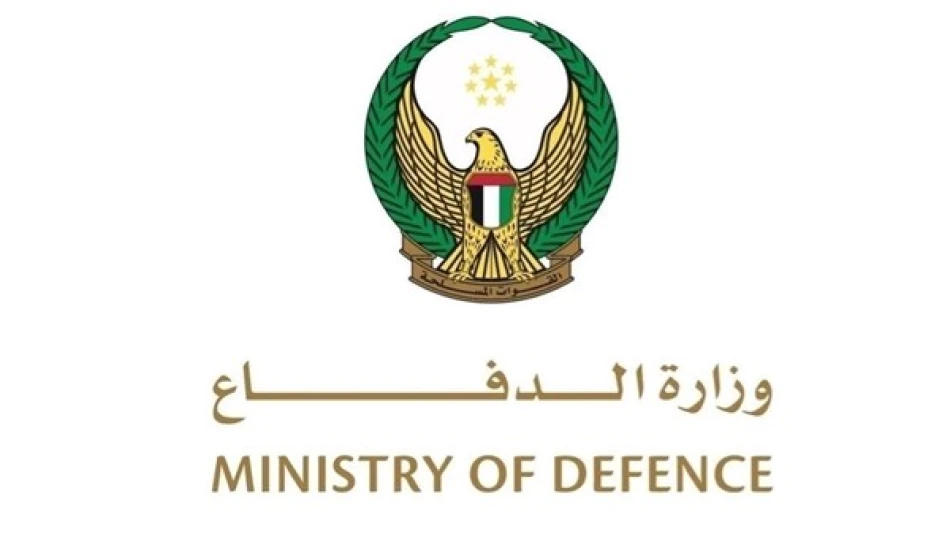
Dubai Airshow 2025: Ministry Unveils Exciting Details at Media Briefing
Dubai Airshow 2025 Set to Be Largest Edition Yet as UAE Positions Itself as Global Aviation Hub
The UAE Ministry of Defense has unveiled details for the Dubai Airshow 2025, promising the largest edition since the event's inception in 1989. Running November 17-21 under the patronage of Dubai's ruler Sheikh Mohammed bin Rashid Al Maktoum, this year's show will spotlight space technology innovations and the critical role of startups in driving aerospace sustainability—signaling the Emirates' ambitious push to dominate the next generation of aviation and space commerce.
Strategic Timing Amid Global Aviation Recovery
The timing of this expanded airshow reflects the UAE's calculated bet on aviation's post-pandemic resurgence. With global air travel returning to pre-2020 levels and defense spending reaching record highs due to geopolitical tensions, Dubai is positioning itself as the essential marketplace for aerospace deals in the Middle East and beyond.
Brigadier Mohammed Obaid Al Murshoudi, Deputy Executive Director of the Military Organizing Committee, emphasized the event's role in strengthening cooperation with international organizations—a diplomatic approach that has consistently helped the UAE punch above its weight in global aerospace markets.
Space Technology Takes Center Stage
The focus on space innovations marks a strategic shift that aligns with the UAE's broader space ambitions. Following the success of the Hope Mars mission and the UAE's growing satellite industry, this emphasis positions Dubai as a competitor to established space commerce hubs like Singapore and emerging centers in Saudi Arabia.
For aerospace companies, this represents a crucial opportunity to tap into Middle Eastern space budgets that have grown exponentially over the past decade. The region's governments are increasingly viewing space capabilities as essential for both economic diversification and national security.
Startup Integration Signals Industry Transformation
The explicit focus on startups driving sustainability represents more than corporate responsibility—it's a recognition that traditional aerospace giants need agile partners to meet rapidly evolving environmental regulations and customer demands.
This approach mirrors successful strategies seen in other aviation hubs: Singapore's Changi Airport has become a testbed for sustainable aviation technologies, while European airshows increasingly showcase electric and hybrid aircraft startups. Dubai's integration of these companies into its flagship event suggests the UAE is serious about leading rather than following in green aviation.
Market Implications for Global Aerospace
For investors and industry players, the expanded scale signals several key opportunities. Defense contractors will find Middle Eastern buyers flush with oil revenues and motivated by regional security concerns. Commercial aviation companies can access airlines that are among the world's most aggressive in fleet expansion and route development.
The startup focus also creates a unique dynamic: established aerospace companies will likely use the show not just to sell existing products, but to scout acquisition targets and partnership opportunities that could accelerate their own sustainability transitions.
Dubai's Growing Aviation Dominance
Since 1989, the Dubai Airshow has evolved from a regional trade event to a global aerospace marketplace that rivals Paris and Farnborough. The UAE's strategic location, business-friendly policies, and massive infrastructure investments have created an ecosystem where international deals flow more easily than in many Western counterparts.
This year's "largest edition" claim isn't just marketing—it reflects the UAE's successful strategy of combining state resources, private sector efficiency, and international connectivity to capture an outsized share of global aerospace commerce. As traditional aviation powers grapple with regulatory complexity and economic uncertainty, Dubai offers a streamlined alternative that increasingly appeals to both buyers and sellers in the global aerospace market.
Most Viewed News

 Layla Al Mansoori
Layla Al Mansoori






